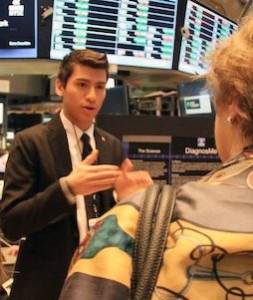Riley Ennis, 20, is the CEO of a biotechnology startup, Immudicon LLC. In high school, Riley worked for three years on a cancer vaccine that teaches the immune cells of the body to recognize and remove tumors. Immudicon is focused on further research and licensing the cancer vaccine platform technology. Riley is currently a junior at Dartmouth College, where he is double majoring in economics and biomedical engineering.
We asked Riley what advice he would give to other young people who have aspirations in business.
Here’s what he said.



